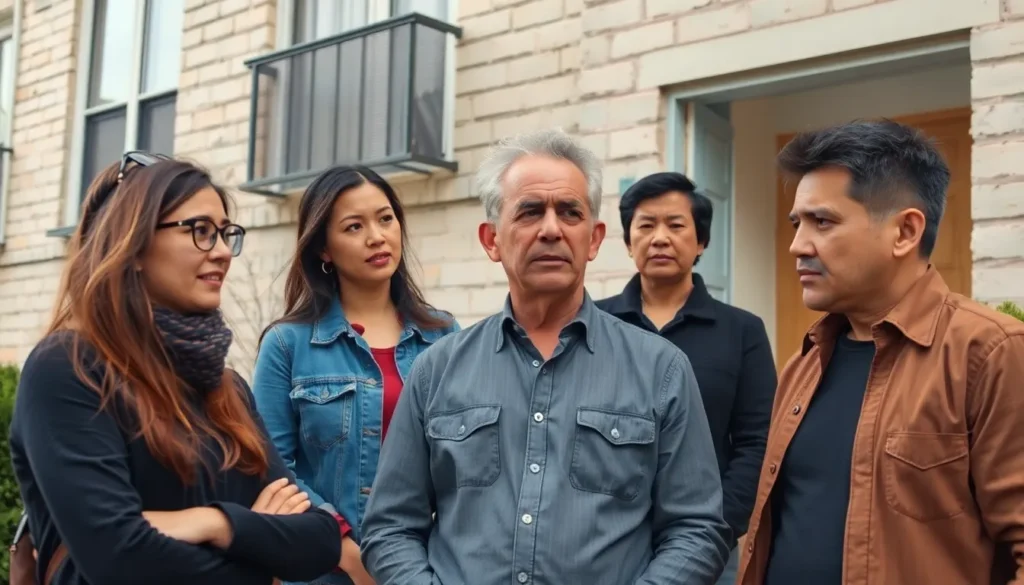Navigating the world of renting can sometimes feel like walking through a minefield, especially if you find yourself without a lease in Alabama. But fear not. In the grand saga of tenant rights, not having a formal lease doesn’t mean you’re left without protection. This guide is a sprinkle of knowledge you desperately need, written in a way that’s both clear and enjoyable. Let’s break it down and equip you with the information required to stand tall (or at least confidently) in apartment negotiations.
Table of Contents
ToggleUnderstanding Tenant Rights in Alabama

In Alabama, whether you’re living in a cozy studio or a sprawling duplex, understanding tenant rights is crucial, especially if you find yourself without a formal lease. Simply put, tenants have rights that protect them from unjust landlords and ensuring they have a safe, habitable living environment. The state has established guidelines that govern landlord-tenant relationships, providing a foundation for both parties to work from.
Without a lease, things can get complicated, but that doesn’t mean these rights vanish into thin air. From implied agreements to tenant expectations, Alabama law ensures a baseline level of protection for all renters. Even unwritten arrangements come with their own set of standards and legal backing that can empower tenants to advocate for themselves.
Legal Basis for Tenant Rights
The legal landscape of tenant rights in Alabama primarily stems from the Uniform Residential Landlord and Tenant Act (URLTA). This act outlines the responsibilities and obligations of landlords while offering fundamental rights to tenants, even if they don’t have a traditional lease.
Under URLTA, tenants have the right to a habitable living space that meets basic health and safety standards. This means your apartment should be free of significant defects, provide essential utilities, and allow for privacy. It’s important to note that verbal agreements can sometimes lead to binding expectations: hence, knowing the legal framework can be a tremendous advantage when negotiating terms with a landlord.
You should also be aware of local ordinances that may introduce additional tenant protections. Relying on both state and local laws will provide a robust defense against any landlord disputes.
Common Types of Tenancies Without Formal Lease
Not all rental situations fit neatly into the box of formal leases. In Alabama, common types of tenancies without a formal lease include month-to-month agreements and oral tenancy agreements. Month-to-month agreements are often informal yet function in the same capacity as a lease, continuing until either party gives a specified notice period for termination.
Oral tenancy agreements, while more precarious, can still yield tenant rights, as these agreements are recognized by law. But, without written documentation, the burden of proof can shift, making it harder for tenants to establish their claims.
Also, tenants living in a property after a lease expires may find themselves in a holdover tenancy, which can lead to various legal intricacies. Knowing the type of tenancy you have, or if you have any at all, is critical in protecting your rights.
Key Rights of Tenants Without a Lease
Even without a formal lease, tenants in Alabama still possess significant rights that protect their living conditions. They include:
- Right to Withhold Rent: If your landlord refuses to maintain basic living conditions, tenants can lawfully withhold rent, but it’s essential to follow proper procedure.
- Right to Privacy: Tenants have the right to privacy within their homes. A landlord cannot simply barge in without notice, regardless of whether there’s a lease in place.
- Right to Security Deposit: Tenants should receive their security deposit back, provided they leave the apartment in acceptable condition. If the landlord fails to return this, the tenant can seek legal recourse.
- And importantly, the right to a safe environment: This encompasses everything from functional plumbing to working smoke detectors. A tenant should not hesitate to report unsafe conditions.
Responsibilities of Tenants Without a Lease
Tenant responsibilities, even without a formal lease, are numerous. Just because a tenant has fewer documents doesn’t mean they escape obligations. Here’s a rundown of key responsibilities:
- Maintenance of the Property: Tenants must keep the property in proper condition. While landlords are responsible for major repairs, maintaining cleanliness is often the tenant’s responsibility.
- Payment of Rent: Regardless of the lack of a formal lease, timely payment of rent must continue. Failure to do so can lead to eviction, even in the absence of a traditional agreement.
- Respect for Neighbors: Quiet enjoyment is not solely the tenant’s right: it’s a responsibility too. Being considerate to neighbors fosters good community relations and can help prevent potential problems.
- Follow Local Laws: From noise ordinances to property maintenance codes, being well-versed in local laws ensures that tenants remain on solid ground.
How to Protect Your Rights as a Tenant
Taking proactive steps to protect tenant rights can make all the difference. Here are some practical steps:
- Document Everything: Keep thorough records of any interactions with the landlord, including verbal agreements, emails, and maintenance requests. Written documentation can be a powerful tool if disputes arise.
- Know Your Local Laws: Familiarizing oneself with both state and local tenant laws can provide a safety net for future situations. Local housing authorities can be a helpful resource.
- Always Report Issues Promptly: Should a problem arise, report it to the landlord as soon as possible. Delays can affect the ability to address issues effectively.
- Communicate Openly: Establishing a cordial relationship with the landlord can help smoother resolutions to any disputes.













